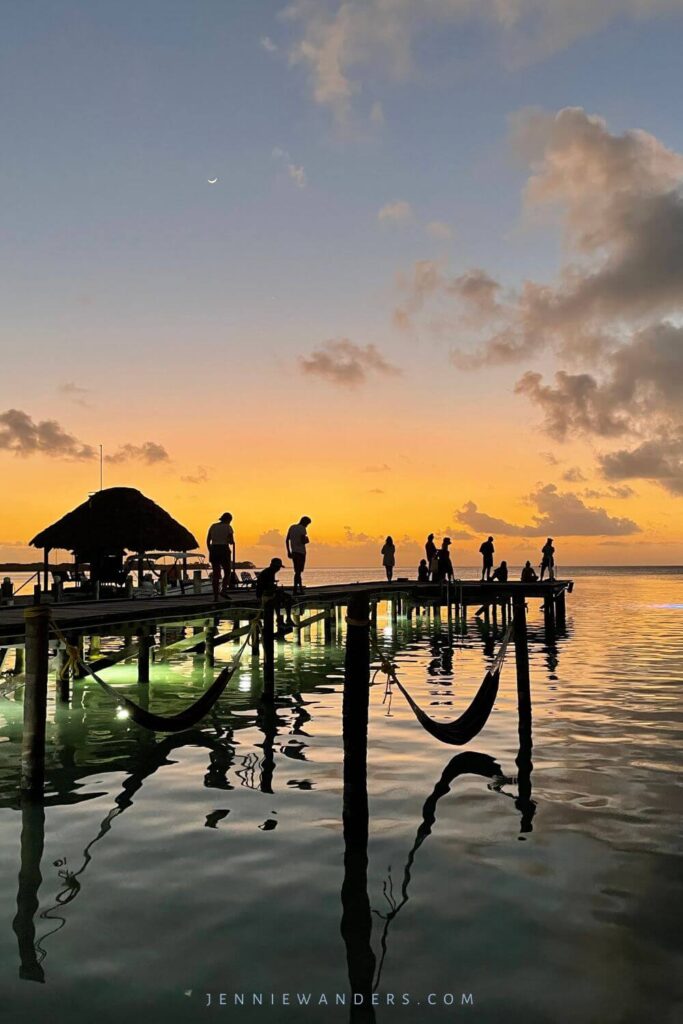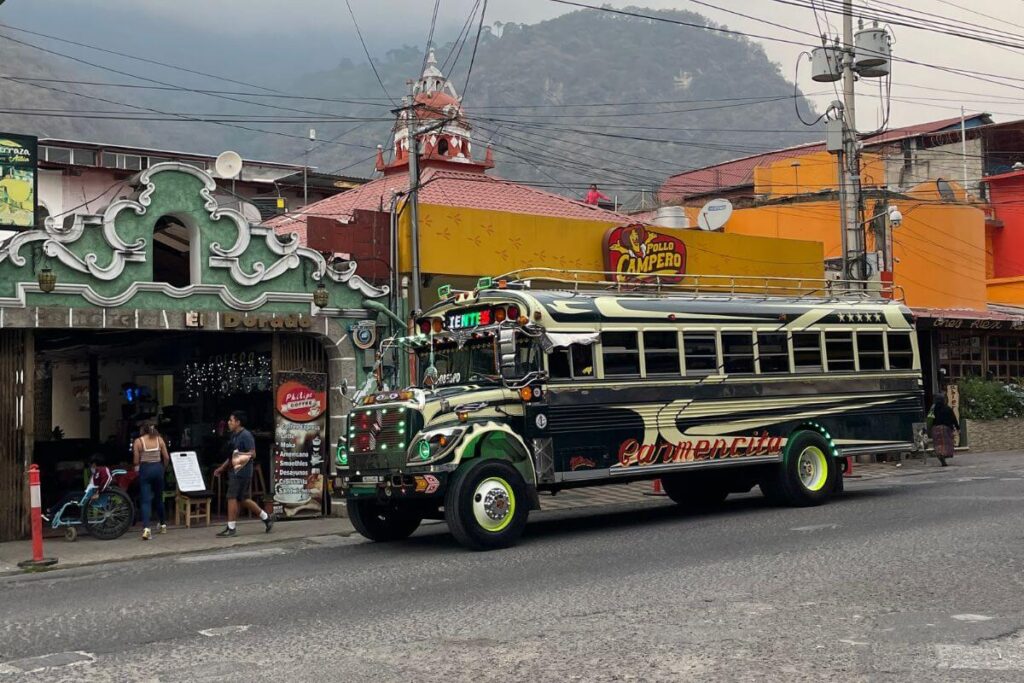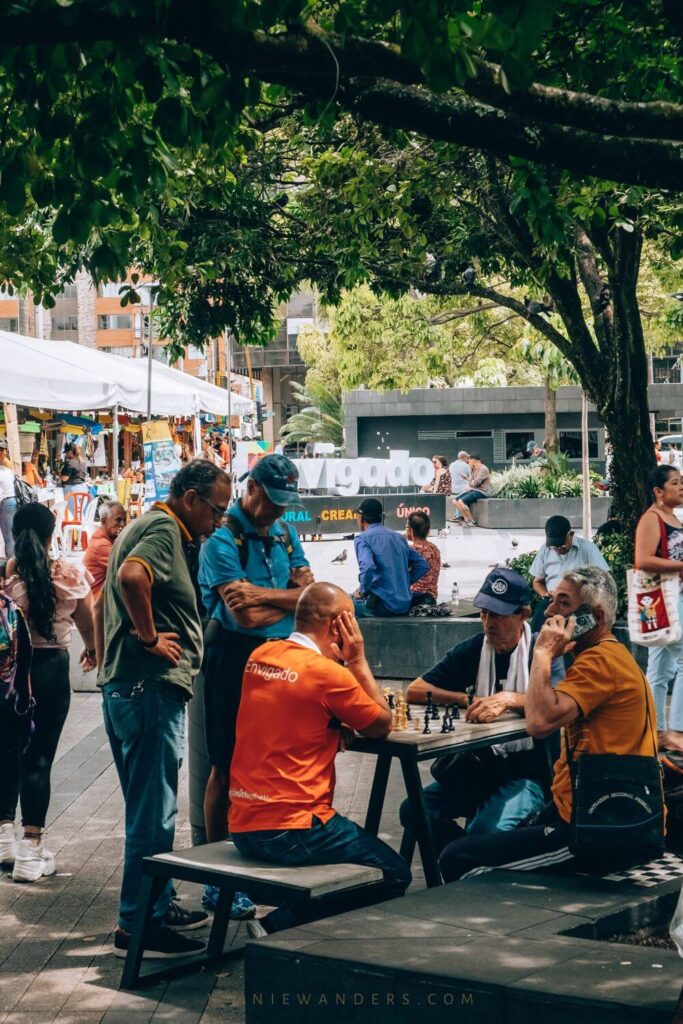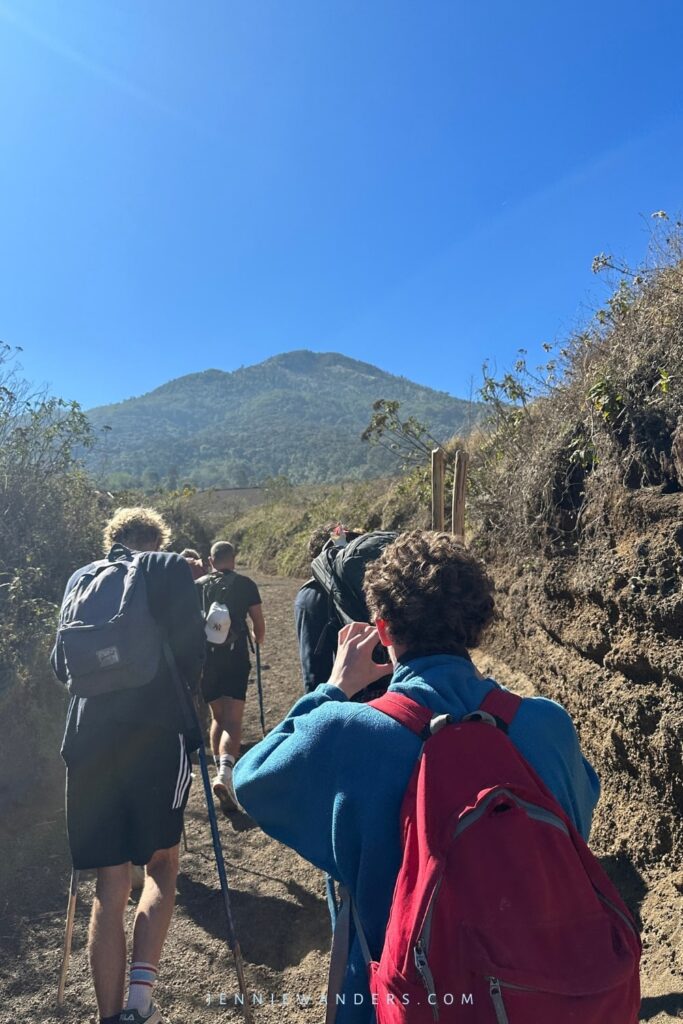How YOU Can Travel More Sustainably (& I Promise, It Isn’t Hard!)
NOTE: This is a guest post written and shared by the wonderful Dee Nowak of Vanilla Papers!
Do you want to travel more sustainably with fewer tourists and crowds? You’re in the right place! Here are all my top sustainable travel tips to make your next trip unforgettable.
You dream about your trip for months. You read all the travel guides and watch all the YouTube documentaries. But when you finally arrive at your dream destination, it’s not as you imagined.
Thousands of other travellers from all over the world also had that same dream. And now you’re all gathered in the same market square dodging pushy souvenir vendors.
Have you ever felt that disappointment?
More people are travelling now than ever before. And those tourist crowds have a disastrous impact on local communities and natural habitats.
Overtourism is so dire that the WTO recommends that popular countries restrict visitor numbers and promote lesser-known destinations.
And many places are already cracking down on tourist numbers.
Sustainable travel is the answer.
Nobody wants a claustrophobic experience pushing through those sightseeing crowds. So how do you avoid over-tourism – and make your travels less hurried and more enjoyable?
Sustainable travel is the answer.
It makes your trip an unforgettable experience – and empowers local communities while combating global warming.
And it’s often just so much more enjoyable! Honestly, some of my favorite experiences have been at lesser-visited destinations, whether that’s stargazing in the Egyptian desert or exploring Hispanic heritage in Arizona.
What Is Sustainable Travel?
Sustainable travel aims to reduce the negative impact of tourism on local communities and the environment.
It’s mindful travel that doesn’t harm delicate landscapes or local cultures.
Sustainable travel means:
- safeguarding fragile eco-systems and protecting nature
- reducing travel’s carbon footprint and combating global warming
- empowering local communities, their culture and livelihood
- reducing waste and pollution

Why Is Sustainable Travel Important?
With global temperatures on the rise and record-breaking summers, sustainable travel is more important than ever to protect endangered landscapes and cultures.
If overtourism remains unchecked, it will further damage nature, people and animals. And because we’re all interconnected in today’s globalized world, those disasters will hit us all.
So how can you turn the concept of sustainable travel into actionable tips for your next trip?
Let’s get started and discuss some of the best sustainable travel tips you can find!
1. Travel In The Off-Season
Travel in the off-season to avoid crowds in some of the world’s most popular tourist destinations.
You’ll make your trip far more manageable – and avoid the stress, overcrowding and long lines of the high tourist season.
Prices are lower, the locals are more relaxed and museums are less congested in the off-season. And you’ll be reducing the impact of overtourism on your choice of destination.
If you’re visiting a touristy city like Venice, you’ll be amazed at the difference in the off-season. Visit in the spring or autumn and you’ll have the ultra-popular city nearly all to yourself.
I last visited Venice in November. And yes, I got caught in the rain on a cold night. But I also enjoyed a few sunny afternoons when my claustrophobia wasn’t triggered.
Like planning your travels? You might like…
- 2 Days In Cartagena Colombia: Perfect Itinerary
- 3 Days In Quito: The PERFECT Itinerary
- 2 Weeks In Guatemala: Perfect Itinerary
2. Eat Vegetarian
Opt for vegetarian or vegan meals during your travels for healthier and more environmentally friendly choices.
Meat has an enormous impact on global warming and livestock accounts for a huge chunk of the world’s greenhouse gases. Though it’s not often talked about (thanks to the meat lobby), going veggie is one of the best ways to combat global warming.
And these days, plant-based meals are just as tempting and innovative as their meaty alternatives.
In many parts of the world where locals can’t afford to eat meat everyday, vegetarian dishes are a crucial part of the culture and national cuisines. And that means you don’t have to sacrifice local foodie experiences when you’re going veggie (most of the tacos we ate in Mexico were vegetarian!).
Eating vegetarian also leaves you feeling lighter and more energized on your travels. And that’s a great feeling when you’re pushing through a packed itinerary.

3. Travel Off The Beaten Path
Get off the beaten path to lesser-visited hidden gems and you’ll be rewarded with stunning experiences and fewer crowds.
The top attractions aren’t necessarily the most incredible. Iceland’s Blue Lagoon is world-famous. But visitors to this Nordic island say other dipping spots are just as majestic – without the crowds.
Research the world’s best-hidden gems to add some intrigue and a sense of discovery to your next trip. Getting off the beaten path means more authentic experiences and travel beyond the postcard views.
It also means you’re reducing the tourist load on the country’s most popular destinations – and getting innovative in your travels.
Locals are often friendlier and more helpful when they see enterprising travellers interested in their underrated regions.
When tourists are rare, they’re often treated all the more special.
Related experience: Did you know there’s an African community in Colombia? Our trip to Palenque was one of the highlights of our Latin America trip. You can check it out here!
4. Spend Locally
Buy locally-made products to ensure that local communities benefit from tourism and the destination remains authentic.
Shop locally and get your groceries from the corner shop instead of the mega-chain supermarket. It cuts down on transportation and packaging and creates more local jobs.
Find local activities that give back to residents and avoid corporate tourist traps. Hire local tour guides – they often know their neighbourhood’s best.
Buy handicrafts instead of cheap Chinese souvenirs to help support the local artisans and keep their art alive.

5. Take Public Transportation
Take the local bus or metro whenever possible to reduce air pollution and ease traffic congestion. Hop on a train for short distances and avoid car rentals as much as possible.
Use public transport to slow down your itinerary and get a chance to unwind, mix with the locals and take in the views.
Trains are your best option to reduce greenhouse gases. They’re also great for slower and more romantic travel that lets you absorb the landscape, read – and arrive at your next stop refreshed.
Here are some ways to travel lighter:
- Sign up for bike and walking tours to slow down and take in your destination.
- Opt for a sailboat instead of a motor for a more relaxed and sustainable experience.
- Rent an electric car or the smallest vehicle that meets your needs!
Need help getting from A-B? This blog has a whole ton of guides explaining how to get from one destination to the other. You can check out full itineraries and journey maps here!

6. Respect Local Cultures
Don’t litter or make noise late at night, dress appropriately at temples and be courteous to both locals and other tourists.
Remember that you’re a guest in someone else’s home. Don’t take liberties or make demands that you wouldn’t normally make in your own country.
Don’t take photos of others without their permission. And don’t make condescending jokes about others’ poverty, mentality or conservatism.
Respect and kindness fosters a good relationship between visitors and locals. And that makes people more likely to support and improve their local tourism in the future.

7. Stay In Eco-Friendly Accommodation
Opt for an eco-friendly hotel that works to preserve the environment.
A good sustainable accommodation serves local food, has easy access to public transportation, uses eco-cleaning products, recycles, uses energy-saving lights and manages its water use.
If you want a real break from technology, stay at an eco-lodge and support sustainability with your booking dollars.
8. Avoid Single-Use Plastics
Single-use plastics create pollution, release carbon dioxide and contribute to global warming. Tons of plastic waste ends up in oceans where it endangers precious marine life.
Opt for reusable water bottles and utensils, reusable straws and a thermos to keep your coffee and tea hot when you’re on the go. Carry small containers for leftovers and snacks.
Use biodegradable shampoo and laundry detergent and reef-safe sunscreen.
Take a tote bag along for the day to minimize the plastic bags you’ll pick up along the way.
Pack snacks like nuts and fruit to munch on instead of buying packaged goods from street stalls.
9. Eat Local Food
Choose restaurants with regional specialities and shop at local markets for the best fresh food.
Eating locally benefits the local community and reduces the transport and costs that come with imported goods and exotic restaurants.
Eating locally also supports the economy and lets you experience the local culture.
Local food is an incredible way to get a taste of the destination’s daily life and traditions.

10. Travel Close To Home
There’s nothing like a red-eye flight to an unknown land.
But there are often plenty of hidden gems to explore right on your doorstep. And we often take them for granted.
You don’t have to travel far to break up your daily routine and experience something new.
Sign up for a kayaking class, get out into nature or visit an obscure museum in your city. You’ll cut your carbon footprint while still getting away from it all.
11. Go Where You’re Needed
Travel to destinations that have just rebuilt after natural disasters and are struggling to recover their tourism numbers.
Recovering destinations are often rebuilding their infrastructure – and your support makes a real difference to their economies.
A trip to a recovering country is also a great way to experience the destination before the tourist crowds come flooding back.
12. Support Local Initiatives
Get involved in a local activity that benefits the environment, like a beach clean-up or rooftop gardening initiative.
This gives you a chance to meet locals and get an insider’s look at the issues impacting their lives.
It’s also a great way to connect with other like-minded travelers and see first-hand how global warming impacts the entire planet.
Beach clean-ups and environmental initiatives offset the damage caused by overtourism – and teach you about caring for the planet.
13. Avoid Animal Entertainment
Wild animals that are coerced into giving rides and performing tricks for tourists are often tortured or drugged into submission – or kept in tiny cages and mistreated.
Some 75% of animal entertainment has a negative impact on animals, whether it’s orcas kept hungry at SeaWorld or elephants prodded with hooks to give rides.
Even seemingly innocent activities like petting zoos and camel rides mean trading in an animal’s entire life for the sake of a few minutes of entertainment. It’s unethical and out of harmony with nature.
If you want to see some real wildlife in all its majesty, visit a national park or go on an ethical safari.
The experience is unforgettable – and you’ll never want to visit a zoo again.
14. Save Energy
Continue your good energy practices while travelling and unplug items when they’re not in use! Things like turning off the lights and a/c when leaving your room can make a big difference.
Hang the “do not disturb” sign so housekeeping doesn’t wash your sheets and towels every day (which is a great tip in general, especially if you’re an introvert like me!)
Hand wash small items to save them from the hotel’s water-guzzling laundromats.
Pack light and take a good selection of clothes you can layer in any weather!
15. Go Camping Or Stay In An Eco Lodge
Go camping to reduce your carbon footprint and get in touch with nature – and get some valuable offline time with your loved ones.
Or stay at an eco-lodge that lets you camp under the stars and enjoy the rugged landscape in all its unpackaged glory.
You’ll be saving energy and creating some unforgettable experiences.
A trek into the outdoors is all the more immersive when you don’t have to return to a corporate hotel at night.

In a Nutshell: Sustainable Travel Tips
Avoid the tourist traps and escape the crowds – and make your next trip more sustainable.
You’ll be creating an incredible experience while protecting local cultures and reducing global warming.
In the era of massively polluting corporations, such small changes might not always feel significant. But they add up – and local landscapes and communities will feel the difference.
So, there you have it—a full guide of sustainable travel tips written by Dee Nowak of Vanilla Papers.
As always, thanks for reading and supporting the blog!
Happy travelling 🙂
Jennie x
MEET THE AUTHOR!

Hi! I'm Jennie! As a part-time travel blogger based in London, I'm using my 10+ years of travel expertise to encourage & inspire you to step out of your comfort zone through sustainable, mindful and purposeful travel.
If I'm not writing, I'm either reading, drinking coffee or taking a wild swim (all at the same time if I'm feeling impressive).
